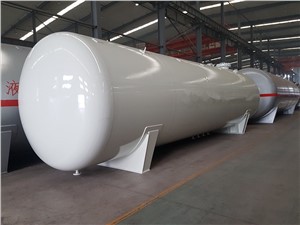EV Tractor Trailers: The Future of Sustainable Hauling

As the global economy shifts towards sustainable practices, electric vehicle (EV) technology has become a revolutionary solution in multiple sectors. Among the most promising advancements is the electric tractor trailer, which can significantly reduce carbon emissions, lower operational costs, and improve long-haul transportation efficiency. This article will explore the various aspects of EV tractor trailers, including their benefits, technologies, real-world applications, and future perspective.
Understanding Electric Tractor Trailers
Electric tractor trailers are heavy-duty trucks powered primarily by electric motors. Unlike traditional diesel trucks, which rely on fuel combustion, EV tractor trailers operate on electricity usually stored in large batteries. This section will delve deeper into the components and functionalities of EV tractor trailers.
Components of an EV Tractor Trailer
| Component | Description |
|---|---|
| Electric Motors | Provide torque and power to move the vehicle. |
| Batteries | Store electrical energy for propulsion. |
| Chassis | The structural framework for the vehicle, accommodating its components. |
| Regenerative Braking System | Recovers energy from deceleration to recharge the batteries. |
| Charging Port | Allows for easy connection to charging stations. |
Types of EV Tractor Trailers
There are primarily two types of EV tractor trailers currently being developed and used:

Battery Electric Vehicles (BEV)
These vehicles are completely powered by electricity stored in batteries. They have no internal combustion engine and produce zero emissions. A well-known example is Tesla’s Semi, which features a range of up to 500 miles on a single charge.
Plug-in Hybrid Electric Vehicles (PHEV)
PHEVs have both an electric motor and an internal combustion engine. They can operate on electric power for shorter distances but switch to gasoline or diesel for longer hauls. Examples include some models from manufacturers like Volvo.
Benefits of EV Tractor Trailers
Electric tractor trailers offer numerous advantages over conventional diesel trucks. Below we explore some of the key benefits.
Environmental Impact
EV tractor trailers help reduce air pollution and greenhouse gas emissions. By utilizing electric power, these vehicles produce zero tailpipe emissions. This contributes to cleaner air quality and helps combat climate change.
Economic Advantages
Switching to electric tractor trailers can lead to significant cost savings. These include:

- Fuel Savings: Electricity is generally cheaper than diesel, resulting in lower fuel costs.
- Maintenance: EVs have fewer moving parts, leading to reduced maintenance costs over time.
Performance and Efficiency
Electric motors provide instant torque, which can translate to faster acceleration. Additionally, the regenerative braking system improves overall efficiency by converting some of the energy spent on acceleration back into stored power during deceleration.
Challenges Facing EV Tractor Trailers
Despite their benefits, electric tractor trailers face several challenges that must be addressed for widespread adoption.
Range Limitations
Currently, the range of many electric trucks falls short compared to traditional diesel trucks. However, advancements in battery technology and infrastructure improvements are being made to alleviate these issues.
Charging Infrastructure
The availability of fast-charging stations is critical to the success of EV tractor trailers. Strategic investments in charging infrastructure are required to support long-haul trucking.
Initial Costs
While operational costs are lower, the initial purchase price of an EV tractor trailer can be significantly higher than diesel counterparts. Nevertheless, government incentives and decreasing battery costs are beginning to offset this disparity.

Real-World Applications of EV Tractor Trailers
Several companies are already integrating EV tractor trailers into their fleets. Below are some notable examples.
Long-Distance Hauling
Companies like DHL and FedEx have started pilot programs using electric trucks. These programs aim to test the viability of electric trucks for weekend and holiday deliveries.
Urban Deliveries
Electric tractor trailers are particularly well-suited for urban environments where low emissions are crucial for local air quality. For example, Walmart is increasingly using electric models in urban settings for last-mile deliveries.
Future Trends in EV Tractor Trailers
The future of electric tractor trailers looks promising, with ongoing technological advancements and an evolving regulatory landscape. Here are some key trends to watch:
Battery Technology Innovations
New developments such as solid-state batteries offer the potential for longer ranges, shorter charging times, and increased safety.
Autonomous Driving
The integration of autonomous driving technology with electric trucks could revolutionize logistics entirely. Companies like Waymo are actively testing autonomous electric delivery trucks.
Practical Tips for Adopting EV Tractor Trailers in Your Fleet
If you’re considering adding electric tractor trailers to your fleet, here are some practical tips to guide you:
Assess Your Operations
Evaluate your routes and their distances. Consider whether current battery technology meets the range requirements of your operations.
Invest in Charging Infrastructure
Plan and invest in charging stations at key operating locations to create a seamless transition for your electric fleet.
Engage Employees
Ensure that your drivers and mechanics are adequately trained to operate and maintain electric vehicles through workshops and hands-on training sessions.
Frequently Asked Questions (FAQs)
What is the average range of an EV tractor trailer?
The average range can vary widely but is generally between 200 to 600 miles depending on the model and battery capacity.
How long does it take to charge an EV tractor trailer?
Charging times can range from about 30 minutes to several hours, depending on the charging station’s power output and the truck’s battery capacity.
Are there government incentives for purchasing EV tractor trailers?
Yes, many governments offer incentives such as tax credits, grants, or rebates for companies investing in electric vehicles to promote sustainability.
What companies are leading in EV tractor trailer technology?
Manufacturers like Tesla, Volvo, and Freightliner are at the forefront of developing innovative electric truck models.
Can EV tractor trailers operate in extreme weather conditions?
Yes, electric trucks are designed to operate effectively in various weather conditions, but battery performance can be affected by extreme temperatures.
What is the maintenance schedule for an EV tractor trailer?
Maintenance needs for EV tractor trailers are generally lower than for diesel trucks, but regular inspections and battery health checks are recommended.
